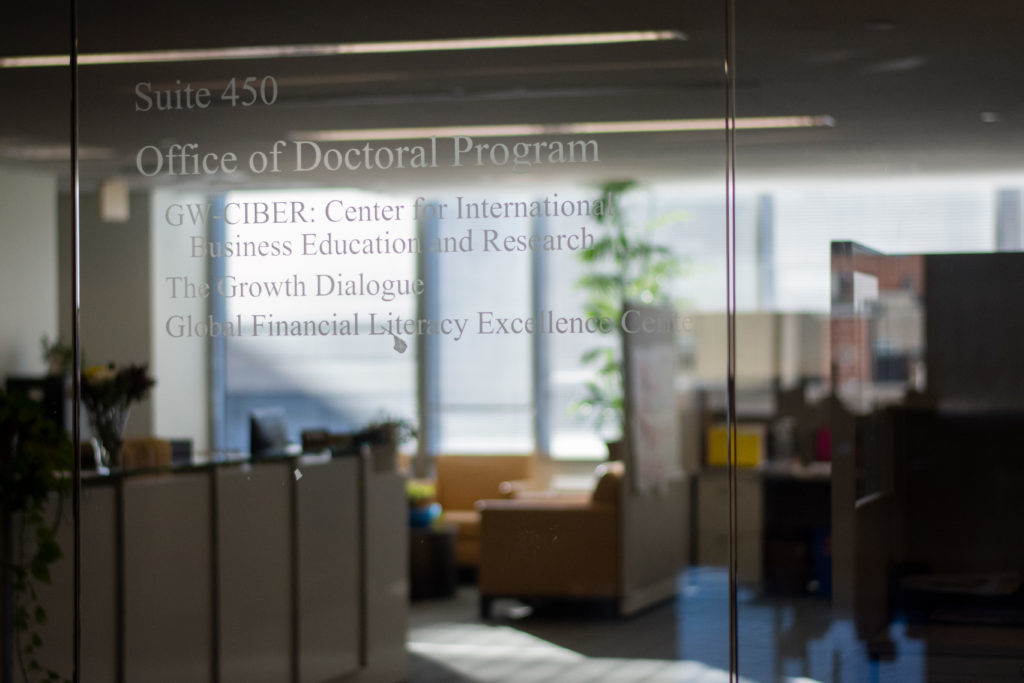GW’s international business center is partnering with two nearby schools to expand international business education, officials said.
West Virginia University and the University of Richmond are now part of a consortium run by GW’s Center for International Business Education and Research, one of the 17 faculty development and research centers funded by the U.S. Department of Education. Officials said the collaboration will help forge research partnerships and further build the center’s ability to serve as a regional resource for international business.
Anna Helm, the director of the CIBER program, said the University will organize research conferences with faculty and doctoral students from the two universities. She said the conferences will connect researchers from different schools but with similar interests, potentially fostering research collaborations.
She added that the U.S. Department of Education says CIBER programs “serve as regional and national resource centers.”
“We have opted to deliver on this mandate by expanding our reach with the help of two new strategic partners in addition to already existing ones, such as Howard University,” Helm said.
WVU and the University of Richmond were chosen for the partnership because they fit the theme of GW’s center – “Institutions, Inclusive Globalization and U.S. Competitiveness,” she said.
“This theme recognizes the shifting landscape in the U.S. and abroad and the conflicting attitudes towards globalization both within and across countries and the changing needs of CIBER’s stakeholders,” Helm said.
David Dawley, the director of the business program at WVU, said Helm reached out to him last spring and decided to partner with the school in June. He said when the center’s funding was renewed with a grant of $1.3 million earlier this month, the partnership became official.
Dawley said the CIBER program’s funding dictates that GW must reach out to adjacent states to aid efforts to develop faculty and student interest in international business. WVU does not have an international business specialist, Dawley said, and working with GW could bring more international perspective to the business school’s curriculum.
He said the universities will participate in an annual conference of researchers and international business owners, and WVU administrators will work with GW to obtain funding for study abroad programs for business students and faculty.
GW’s CIBER program offers funding for international business research and a workshop for faculty on how to teach international business, according to the program website.
Dawley added that even without the international business benefits, partnering with a reputable university like GW gives the program more resources to explore an international business curriculum.
“To have a CIBER relationship is very, very prestigious, and George Washington University and its faculty are very prestigious,” he said.
Thomas Cosse, the associate dean for international programs at the University of Richmond – the other school that signed onto the partnership – did not respond to multiple requests for comment.
GW’s consortium is the second CIBER regional consortium in the United States, established more than 10 years ago following the creation of the Rocky Mountain CIBER consortium at Brigham Young University and the University of Colorado Denver.
Jonathon Wood, the managing director of BYU’s center, said it is not possible to start a business without considering the global market, which is why spreading education in international business is a necessary task.
Wood said a CIBER center like GW’s has funding that can make a big difference for smaller schools. He said his center sends faculty abroad and to research conferences that improve their understanding of international business, which can “trickle down” to their students through their curriculum.
“Having cultural competence – global competence – is going to be crucial to success in the future,” he said.





